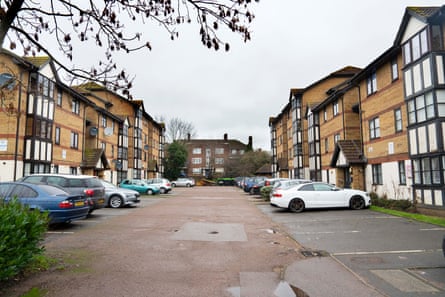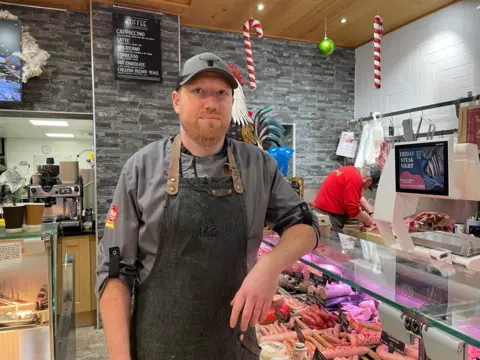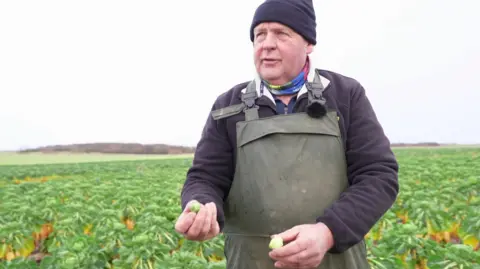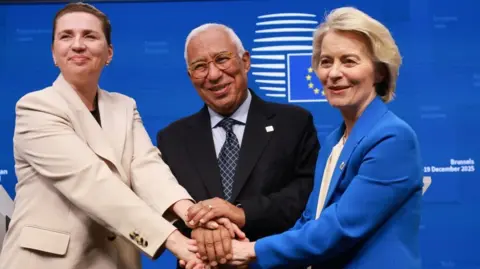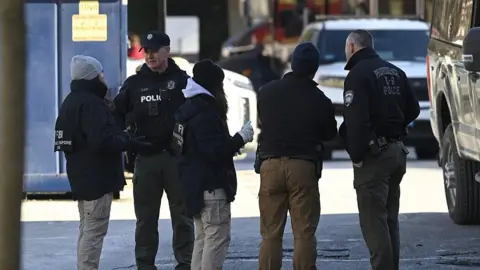
CDT 档案卡
标题:南方技校里,滑落的少男少女
作者:芦发表日期:2025.12.17
来源:最人物CDS收藏:公民馆版权说明:该作品版权归原作者所有。中国数字时代仅对原作进行存档,以对抗中国的网络审查。
详细版权说明。
每年中考后,未能升入普通高中的学生会经历一道隐形的筛选。成绩稍好些的,大多流向教育部门主管的中专学校。
最后,“筛选后剩下的那群人”,来到人社部门主管的技校。这也意味,对他们来说,学历与升学不是关键词,技能与职业才是。
根据人力资源和社会保障部发布的2024年度统计公报,截至2024年底,全国技工院校在校学生人数为428.7万人。
在社会“约定俗成”的印象里,上技校的孩子,大多是成绩差、爱捣乱、难管教的坏学生。
粗糙标签之下,这些少年究竟是怎样的?他们背负着怎样的过往?当青春被高度压缩为“预备工人”的养成期,他们经历着怎样的仓促与迷茫?
袁洁试图走进这片被简化的现实。
袁洁做过报社记者和房地产文案,2010年研究生毕业后,她选择来到这所南方技校,成为一名语文老师。
从业多年,袁洁一直在思考、复盘自己的工作,并作为工作记录诉诸笔端,最终,这些汇集大量生命经验的文字汇总成《南方技校的少年》一书。
媒体报道常聚焦技校里那些少数“好学生”。这本书想呈现的,恰是被忽略的多数——他们在中考过后的一两年里,经历着一场缓慢却清晰的“滑落”,处于“阴影之下”。
以下是根据《南方技校的少年》和袁洁的自述整理而成:


这学期课前分享,有学生讲了《热辣滚烫》。我顺势鼓励他们:人生像电影,哪怕为“赢一次”去做看似无意义的事,也可能找到意义、获得重生。你们才十五六岁,别因一次失利就“摆烂”。
我刚说到“摆烂”,底下就传来一句:“不摆烂就不会来这里。”
声音很轻,但我听见了。十多年了,这话太熟悉。他们总在否定——先否定学校,再否定自己。
在技校当老师久了,会发现这些孩子的“配得感”极低。他们不觉得自己配得上好的机会,不觉得自己能做成什么事。
有时候,这种不愿积极、拒绝思辨的态度,也会用集体狂欢式的戏谑表现出来。
我设计过“生死课”。试图探讨“既然死是一件必然的事,那么,人生在世该及时行乐还是抓紧时间追求意义?”
对于这个问题,学生们总是放肆地大喊大叫“当然是及时行乐啊”。
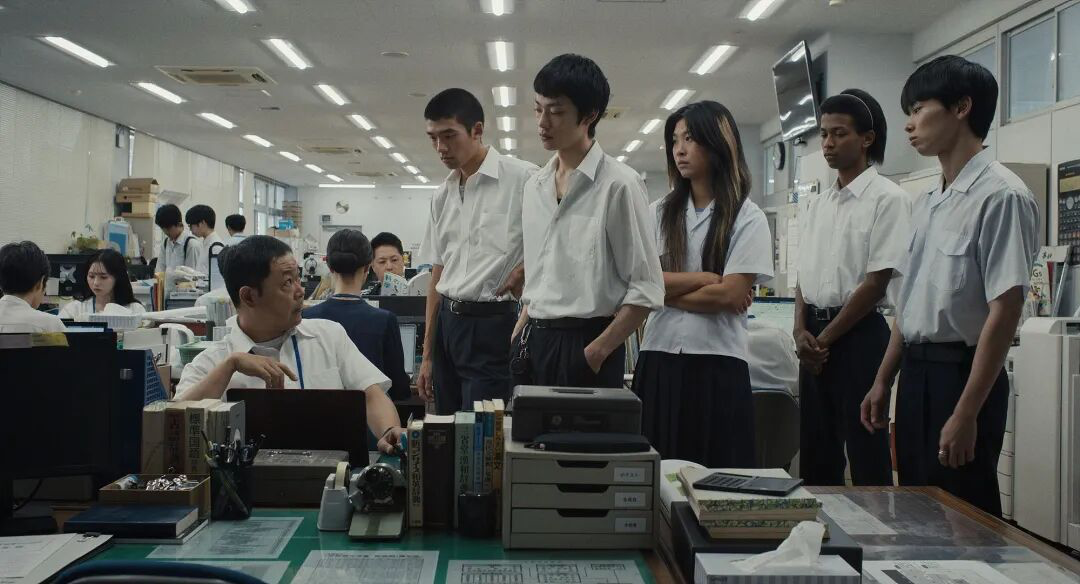
[sc name="ts" text="《昨日青春》剧照
这种根深蒂固的低自信,直接导致他们在任何事情上都显得不主动、不积极。
最近,我们班一个学生放弃了船务公司的面试。学校跟船运公司长期合作,毕业生通过培训考取船员证就能上船工作,起薪将近一万。这次我们专门请人做了面试培训,还安排了接送车辆。
但他对我说:“老师,我肯定选不上。我18年来没做成过一件事,我就是个失败的人。”该劝的都劝了,可面试当天他还是没出现。
在过去15年,我见过太多类似的面孔。这些南方技校的孩子,习惯了不被看见——在课堂,在家庭,甚至在自己的人生里。他们也渐渐放弃了自己。
我在这所南方技校已经工作了15年。最初,我并未想过成为老师。没想到研究生毕业后,几经辗转,我最终还是走进校园,拿起粉笔。
头几年教书,我凭着过去受教育的惯性,认定必须严抓成绩、高标准要求。那时,我教课的班,语文课挂科一二十人是常事,考不过就是不过,毫不通融。
但我渐渐发现,不是所有老师,都和我有一样的观点。
我曾带过一个学生,他在一门专业实训课上要么神游,要么想方设法逃课。任教的是位经验丰富的老教师,他似乎并不强求,只对学生说:不管学多少,一定要做好“5S”(整理、整顿、清扫、清洁、素养)。期末,这个没学到多少技能、但认真打扫卫生的学生,竟顺利通过了课程。
当时,我对此很不认同。然而,讲台之下,现实的冲击很快向我涌来——
一次课上,一名学生突然冲上讲台,在离我一步远的地方激动地指着我,指控我曾拿东航坠机事件开玩笑,说不尊重逝者会遭报应(事实上我并未开玩笑,只是作为新闻案例讨论)。导火索是我要求按座位坐,而他非要四人挤一桌。
我明知僵持无意义,却仍试图讲道理说明缘由,结果引发他情绪爆发。

[sc name="ts" text="袁洁
那个学期,类似的事不断发生:管教睡觉的学生被当堂辱骂;让没带书的学生起立,被冷眼抗拒;有学生清晨喝酒后在教室呕吐却不肯离开……
加上这次被指着脸诅咒,在当技校老师的第十年,我陷入了前所未有的职业困惑与精神危机。
事实上,关于学生情绪暴发乃至指责老师的情况,在日常教学中的确不少见。在我看来,学生的愤怒往往不是孤立的情绪,背后通常存在着具体的压力或困境。
我视域里的学生,尤其是初中毕业入校,那几乎就是他们人生最茫然无序的时刻。他们大多在中考过后的一两年里,经历着一场缓慢却清晰的“滑落”。而这种状态,也常被外界理解为职校技校“校风乱”“管不好”的缘由。不可否认,的确如此,这些孩子处于“阴影之下”,他们也最牵扯老师的心力。


职业学校的家长和普通中学的学生家长相比,在孩子的教育参与度上确实是不一样的。
这些选择技校的孩子,他们的家庭背景往往高度相似:留守儿童、父母离异、或者父母忙于生计。
在我们微信群里,大约近一半的家长从来不说话,哪怕被@了也没有半点回应,甚至有些家长我去私聊完也没有反应,我常觉得自己像是对着一个空号发信息。
许多父母的“看不见”,或许是从“顾不上”开始的。他们奔波在流水线上、守在灶台前、穿行在工地间。当“挣钱养家”耗尽了大部分时间和心力,“好好说话”就成了奢侈品。于是,关心退化成最基本的两句:“吃饱没?”“别惹事。”更深处的孤独、迷茫和呼唤,就在这种简化中被一并过滤掉了。
其实回头想,学生和家长可能都曾努力过,只是他们的努力从未被对方真正看见。孩子觉得父母不在乎自己,父母则觉得孩子“无药可救”,认为自己已经付出够多,却看不到任何改变。
在这种双重困境里,孩子也摸索着自己与世界相处的方式。有的把脏话当成了盔甲,有的则完全困在自己的焦虑里。
技校里的女孩们没有掌握更多疏导自己情绪的方法,也找不出更有效的对抗手段,讲脏话便成了最直接、最便捷的方式。
她们互相之间用说脏话的方式打招呼:“某某某,x你妈。”对面也很默契地扯着嗓子回应:“嘿,某某某,x你妈。”
这些自然而然就脏话连篇的孩子中,女生的占比一点儿都不逊色于男生。她们用那些连绵不绝的、带有攻击性的言语来武装自己与别人战斗,拼个你死我活。由嘴开始,演绎到极致,便酿成校园霸凌。
小A是个十六岁女生,因霸凌同班的另一个女生被叫到派出所。调解现场,小A依然一连串的高音调脏话,说起掌掴同学和让人下跪的行为,她理直气壮:“谁让她说我的?!”小A始终戴着口罩,因为有容貌上的焦虑,据称被霸凌者正是基于此,在言语上伤害了她,才导致她决定周末约对方到公园的小亭子里,给对方点“教训”。
十六岁的小A成长于一个重组家庭——母亲带着她改嫁后,新家里有后爸、两个“自家的”儿子,还有一位偏心的奶奶。作为外来又身为女孩的她,长期被忽视甚至歧视。另一位少女小B,也来自一个“消失”的家。她早已独自在外生活,母亲对她不闻不问,连生活费也极少给予。
小A和小B在霸凌同班同学之前,都已经因心理问题办理了因病休学,显然,休学并不意味着治疗和恢复,而是在无人管教的环境下,更进一步滑向堕落的深渊。
在教学过程中,我也慢慢感觉到,许多孩子心理上的困境,其实不只存在于技校生中。很多孩子来到这里时,心理上已经带着一些问题。那些痕迹,大多是在更早的成长阶段里,一点一点留下的。
每接新班,我都让学生写三百字自我介绍,要写出最特别的点,让人一眼记住。去年秋天,我真收到了一份几乎由“处分”构成的个人简历。
这个学生写道:在原中学,因在家睡太晚,被妈妈拖到地上拍照发给老师;在英语课睡觉,照片被公开,遭到同学嘲笑;进了技校,没去军训,被老师口头教育……
他用最平淡的语气,把自己铺成一张布满红叉的试卷。在这背后,是一个少年如何被一次次推开、标注、最后放逐的过程。
没有人不希望受到尊重、被好好对待,尤其是这些被“打击”多了的孩子。不少学生在作文里写自己的成长史,总提到自己是被嫌弃、不被理解的那个。这是他们童年和少年的现实:从努力到被打击到自我放弃,哪怕打击与嫌弃不是来自家人,也来自旁人的眼光、社会的评价。
我们的工作导向,不单单是把课讲好就行,而是必须把那些边缘的、消极的学生也“拽”进课堂。
说到底,人得先在某件事上得到肯定,才可能慢慢产生热爱。
比如运动会,头两年我们让学生自愿报名,结果报的人寥寥无几,大家都不太主动。后来系里要求每人至少报一项。
于是,很多人被“推”着报名,结果一上场,才发现自己挺厉害,还能拿到名次。到了第四年,情况完全不同。那些之前取得过成绩的孩子,不用我再催,自己会提前去踩点、练习。他们从中获得了成就感和获得感,自然就愿意参与了。
在技校,我们投入大量心力的,是学生的日常行为与状态。我们有严格的管理体系——几点离寝、几点到课,是否迟到、早退、旷课,包括课堂上能不能睡觉,都是明确的要求。
常有学生直接问我:“老师,我在初中都睡了三年了,现在你为什么要管我睡觉?”
很多时候,外界,尤其是一些拥有更多选择权的人,会觉得我们管得太严、太细,是一种不必要的规训。
这倒不是简单地为了让学生“听话”。让他不迟到、不睡觉,在建立规则意识的奔赴中,我们之间的沟通本身,也是一种“被看见”的过程。
在无数次的交流中,他那些被称为“问题”的习惯,才有可能松动。

[sc name="ts" text="我所在的学校是南方的一所技校。
技校属于广义上的中职,但它和大家在讲述职业教育时常说的中专、职高、高职是有区别的。中专、职高属中职,是初中毕业后“普职分流”的主要去向。高职招收的主要是高中毕业生或具有同等学力(如中职毕业)的学生。
技校同样主要招收应届初中毕业生,但技校是工厂为培养工人而设立的,它不是教育系统归属学校,技工院校的主管部门是人社局(厅)。
学历与升学不是技校的关键词,技能人才培养才是。
学生的日常课程分为文化理论课、专业理论课和专业实训课三类,其中,专业实训类课程在实际教学中占比百分之六十以上,有机械工程系、车辆工程系、电气工程系和生活服务系等。
在学校的宣传册上,“技能成才、技能兴邦”是技校的使命担当,为本地培养、输送技能人才是技工教育的愿景。
实际上,多数学生对“工匠精神”“技能兴邦”这样的口号没什么感觉,他们进入这所学校的时候是中考、高考的失败者,为避免过早进入社会“惹事”而被家长草率地塞进来,根本不是出于某种理想。
在这所学校每年的毕业生中,相当一部分最终并不从事本专业工作。成为一线蓝领工人的前景并不特别讨年轻人喜欢,无论是我入职初期接触的90后,还是现在的00后,他们都喜欢干点小生意,跑跑销售之类的。

[sc name="ts" text="学生在做蛋糕(受访者供图)
我常常想,为什么人们总觉得技校毕业就只能进工厂?我能理解这种刻板印象,但我更理解我的学生们——他们并不甘于那样的人生。
在我们学校,一些被动调剂居多的专业,班级氛围从第一天便沉闷、消极。
一个班的氛围,几乎决定了大多数人的状态。我曾见过眼里带光的新生,抱着“学点真本事”的念头踏进校门。可当他们环顾四周,看到同桌仍在睡觉、后座还在玩手机——和初中时并无两样,那簇刚燃起的火苗很快就熄了。“算了,这里也没什么不同。” 他们悄悄缩回角落,变回初中时那个沉默的影子,再也不愿抬头。
技术员当然是一个好听的名字,但心照不宣的是,和大专本科等高学历的工人不同,技校生的学历决定了他们在厂里的职业天花板不高。
在技校,无论哪一个层次的培养对象,毕业前一年的实习都是必选项。2021 年夏天,我将32名智造电子专业中级工阶段最后一年的学生送进了工厂。
小杰是优秀学生干部,我的得力助手,他带着同学们一起下厂,作为实习生负责人,整个实习期,他是唯一没换过厂也没换过岗(临时顶岗除外)的学生——每天早八晚九,就坐在流水线前压件。他从没有主动开口跟我提过要求,只有问他的时候,会说想去技术岗学点技术。
在中期的实习考核表里,车间给他的评语是“可以胜任高难度的岗位,往技术岗走”。我以此不断鼓励小杰,叫他多主动争取,也在去企业看学生的时候有意无意跟厂里提过,对方也总是欣然应允——但他最终还是在这条流水线,干到了实习的最后一天。
卢俊大概是全班实习生里发展得最好的。他一开始就被分配在波峰焊岗位,既是技术岗,又是走动岗。在这个岗位,他上手快,再加上性格开朗,在企业评价里被列为重点培养对象。卢俊的实习工资也从5000多涨到7000多,岗位也转到做激光打标。
但卢俊的路径无法复制。他的机遇源于一次偶然的岗位分配,以及自身恰好契合的性格。对于更多像小杰一样沉默的大多数,现实是另一番景象。
2022年,外部寒风吹进了工厂,陆续有学生离开工厂,说工厂订单少,到了招聘季,来学校参加招聘的电子企业比往年少了不少,需求量也有所减少。
经过一层层筛选,孩子们的路越走越窄。进厂,似乎成了最后这批孩子注定的归宿——可这归宿与选择之间,并没有真正的相互认同。
我也不禁思考:技校这几年,对这群孩子来说,究竟意味着什么?

我所能做的,是尽力利用好自己的语文课。
在技校,如果说学生们对专业课还有新鲜感和钻研精神,那他们对被迫学了多年的语文早已演变成一种懒洋洋的态度。
作为技工学校的文化基础课老师,我很为难。目前学生在校的头三年里,有五个学期有语文课,平均每周两节课,总共一百七八十节之多,没有了中高考的压力和目标,技校的语文教学更倾向于大学的通识教育。
关于技校的语文课该怎么上,现在有些说法认为,教点实用的应用文就够了,但我不太认同。说实话,现在学应用文用处也有限,很多格式AI都能写得挺好。我觉得语文课更重要的,是培养学生独立的思想和清晰的表达。
缺乏清晰表达的根源,是没有自信。他们常觉得自己讲不清楚,或认为对方不会理解,于是干脆放弃表达。举一个常见的例子:有的学生在觉得被老师冤枉、批评不当时,第一反应不是开口解释,而是握紧拳头、喘着粗气,看似随时可能爆发。
遇到这种情况,我通常会先安抚情绪,引导学生冷静下来,然后和学生一起梳理,遇到自认为不公平的事,该怎么处理。
再比如学校检查仪容仪表,有学生觉得要求不合理,但他只是生闷气、顶撞老师,甚至拒不配合,结果往往是自己受处分,问题也得不到解决。我会告诉他:对抗往往最终伤害的是自己,也解决不了问题;而对话,心平气和地与老师交流,说明你的想法,甚至提出具体的建议,哪怕艰难,却可能打开一扇门,走向更积极的结果。
独立的思想这部分是最难的部分。
一个根本的问题,是现在的学生普遍不阅读。早几年还有人看看网络小说,至少那还是文字文本。但现在,连看书、完整看一部电影的人都越来越少了。他们整天不知道在忙什么,就刷那些“几分钟讲完一本书”、“快速看完一部电影”的短视频,还常常拿这个来应付我,让我很生气。一问细节,他们根本没看过原作。
前两天上课我还说他们:“你们天天消费这些二手信息,博主说好就是好吗?你自己没看过,怎么能形成自己的判断?就像相亲,别人说好你就接受吗?看作品也是这个道理。”
但说实话,我感到很无力。这种碎片化、依赖二手解读的趋势,似乎越来越普遍了。
学生们不读书,我给他们加塞了“美感教育”,随手拍下身边的美景发给我。
在技校教书这些年,我原有的精英视角不断被消解。我不再以那样的目光审视他们,也不再空谈“美学”,只是安静地分享“美”。
通过这些关于“美”的照片,我认识了课堂之外的他们:有人周末去海边通宵等日出;有人无聊时搭公交随意上下,最后在陌生的奶茶店停留;照片里还有亲手改装的摩托车、老家的流水席、校园的三角梅、喜欢的女孩、最爱的游戏截图……没有刷题和考试,他们就这样热热闹闹地感受生活,表达自己。
我无法断定这堂课是否教会了学生“发现美、体验美、欣赏美”,甚至它可能算不上一堂标准的语文课。
但我始终在课堂上保留分享“美照”的环节。比起传授知识,我更想唤醒他们对具体生活的感知力。麻木、粗糙与疏离,不该成为他们青春的底色。

如今,我在这所南方技校已经工作了15年。
在技校当老师并不容易,这份工作有很多具体的痛苦:学生的顶撞、家长的漠视、反复的拉扯。
在我职业生涯的第十年,这种几近崩溃的自我怀疑,让我不得不停下来,回头审视自己走过的路。
我刚开始在这所学校工作时,其实有好几年除了教学外,还在校办公室做行政,大部分时间,我都在处理公文、写讲话稿之类。那几年,我常常感到这份工作特别没有意义。
后来,我主动申请调到了教学岗,当班主任。我的教师生涯,也许才算真正开始。我触摸到一种脚踏实地的价值:你面对的不再是文件,而是一个个具体的人,并能与之产生深度链接。你的话,你的举动,都可能实实在在地触及另一个生命。
在我最痛苦的时候,我逼自己去想——他们为什么会这样?
反思不是为了把自己塑造成多么伟大的、充满共情的教育者。事实上,这种“共情”的过程,首先是我自己的一种疏解和疗愈。它让我能在一片看似混乱和无望的日常里,找到继续前行的支点和平静。
当然,我依然信奉“真”的价值。但我的身份是老师,不是侦探。与其非要当面揭穿一个非原则性的谎言,去争一时一事的“胜利”,我更愿意用暗示让他们知道:我看见了。
对于这些孩子,保证书和处罚早已是家常便饭,他们有很多对抗的经验。但他们极少体验过,诚实和自省,原来也能换来尊重和肯定。
一次课堂冲突后,学生主动交了五百字反省书,剖析得真实恳切。另一个因睡过头迟到的学生,也主动来承认错误。
我喜欢这样的诚意。或许有人觉得,反省不等于改变。但若连这一步都没有,改变又何从谈起?人总得先学会在规矩中站稳,才谈得上真正的自由。
前段时间,一个已经毕业的学生联系我。他说,他正在自己准备参加春季高考——也就是“职教高考”。这算是职校学生主要的升学途径之一。我们学校是以就业为导向的,不会专门组织升学,但每年总有一些学生,是自己想学、想再往上走的。
所以我常说,学生自己有目标、想清楚要做什么,非常重要。只要他想清楚了,这种正当的诉求我们一定会支持。
那个毕业的孩子后来告诉我,他考上了本省的一所公办本科。我很为他高兴,但更让我触动的,是他后面那句话,他说,在备考的过程中,他发现自己不再害怕学习了。
我感到由衷的喜悦。
消除了这份恐惧,未来才有可能推开更多扇门。












